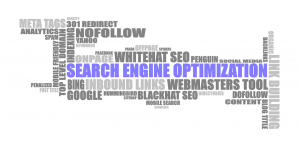What is SEO?
What is SEO? That is a great question, and one that will be explained in detail throughout this blog post. SEO (Search Engine Optimisation) has vastly become an essential part of any digital marketing strategy, due to its proven effectiveness and wealth of benefits (don’t worry I will explain in detail later).
Search engine optimisation is a marketing technique where you aim to grow your visibility organically in the SERP’s (Search Engine Results Pages). SEO is done to improve rankings, increase the awareness of your product or service and drive traffic to your website. However, an important tip to take away is that with SEO, you shouldn’t just create a search engine optimised page, you should make the page user friendly, relevant to your audience’s needs and easy for search engine robots to understand.
The Benefits of SEO
A common question asked around many office buildings around the world is what is SEO? and what are the benefits? If you have asked this question then you have come to the right place.
Better knowledge of your industry and competition
SEO is much more than making your website rank higher on Google, it can be a great tool for understanding what trends are occurring in your industry and even what your customers are searching for. Use Google’s Keyword Planner to find out what terms are being searched and by whom.
Increase your traffic and clicks
One of the most sought after SEO benefits is increasing your traffic, this is because a click through to your website gives you a greater chance of gaining more leads and thus more sales! To gain this traffic, your page must be optimised to rank high on SERP’s, this is because the top positions receive most of the clicks and impressions (see how to optimise your site below). You can use various tools like Google Analytics to track your traffic increase.
Develop your Brand awareness
Aside from bringing more clicks and impressions to your website, ranking highly on search engines installs trust into your potential customers. For example if your website ranks 5th on Google, behind 4 other competitors, there is a much lower chance of someone clicking through to your site. Furthermore, ranking highly with brand relevant keywords help your users associate your brand with those keywords.
Cost Effective
In the world of marketing, SEO is one of the most cost-effective techniques as it is free to do and you have full control of who you’re targeting. This is because SEO targets users who are actively looking for your business/product/service.
Keyword Plan and the Development Process
Conducting detailed keyword research is imperative in today’s world of digital marketing. This is because you need to know what your users are searching for in order to optimise your web pages. Ensuring your keywords are page relevant is key, as you don’t want to bring errelvant traffic to your site, increasing the bounce rate.
Step 1 – Gathering Information
- Crawl/Look at Your Website (you can use Screaming Frog) to get a bird’s eye view of how many pages there are to optimise and how content is grouped/structured.
- Create a keyword map for all pages you want to optimise
- Download search query data from Search Console.
- Download any search query reports from AdWords (if you have done any campaigns in the past).
- If your website has a search function, look at what people are searching for on your site.
Step 2 – The Research
- Look through the data from Search Console & AdWords and place any potential keywords for optimisation on pages in the keyword map, and any potential keywords which could be used to generate blog/FAQ content.
- Research keywords on Google Keyword Planner on a page-by-page basis using any keywords identified in the above point, and any logical combinations based on the pages content e.g what is SEO?
Step 3 – Building your Keyword Plan
- Choose the most relevant keyword for your page based on search volume, competition and price.
- Create a optimised title with your chosen keyword present (keeping the character limit to 55 characters of less)
- Make sure your Keyword is in your H1 title
- Compose your meta description for your page with the chosen keyword. Try to keep it engaging to increase the CTR.
Thank you for reading this blog, i hope you have found it useful and taken away some lasting tips. If you would like to find out more then follow me on Twitter and drop me a message.
Tags: Keyword for SEO, Keyword Planner, learn SEO, what is SEO?
Posted in search, search engine marketing, seo

